Sudan conflict: Living in Cairo, longing for Omdurman
- Published
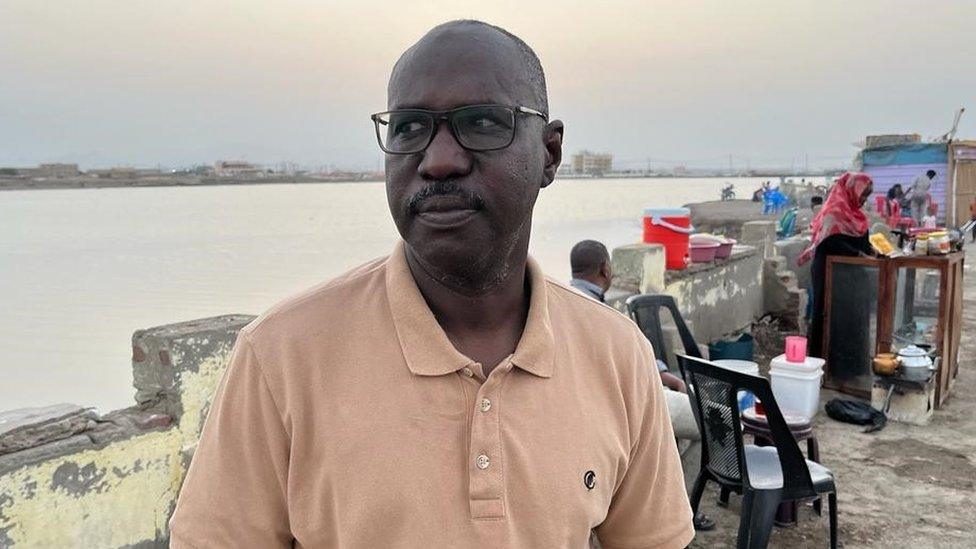
BBC Arabic reporter Mohamed Osman has returned to his home country, Sudan, for the first time since he was forced to flee after war broke out in April, and reflects on how the country has changed.

After longing for home for five months, even the hot, humid air of the coastal city of Port Sudan felt refreshing on my face.
I was finally home - not a foreigner or a refugee in another country, in this case Egypt - a nation with which we, Sudanese, have strong ties. Most people from the two countries speak the same language, eat the same food, belong to the same faith - and even share the River Nile.
But it is not home.
An elderly woman, who was on the same flight as me, was far more emotional, crying with joy when we stepped on to Sudanese soil, as she recalled how she went to Egypt for medical treatment - and got stuck there once Sudan plunged into a civil war in April.
The conflict was triggered by a dispute between its two powerful generals - military ruler Abdel Fattah al-Burhan, Burhan and his deputy-turned rival, Mohamed Dagalo, who is better known as Hemedti.
I had come for a brief visit to Port Sudan, as my hometown, Omdurman, is still wrecked by war. My heart ached that I could not return to it.
Omdurman is a hotbed of violence, claiming the lives of many innocent people, including a close friend who was hit by stray bullets in his home as fighting raged between government troops and Gen Dagalo's Rapid Support Forces (RSF).
As for the woman who was with me on the plane, she had come back for good, as her home town - in the state of Gezira - is peaceful, at least for now.
We had both caught the two-hour flight from Egypt's capital Cairo to Port Sudan. It was the first passenger plane to fly into Sudan since war broke out.
Port Sudan's airport is the only one that has opened. The rest remain shut - including the main international airport in Khartoum, as the capital city - like Omdurman across the River Nile - is hit by air strikes, gun-battles and artillery fire every day.
There are now daily flights to Port Sudan - all fully booked, mostly with elderly people, returning to small towns and villages that have not been scarred by battles.
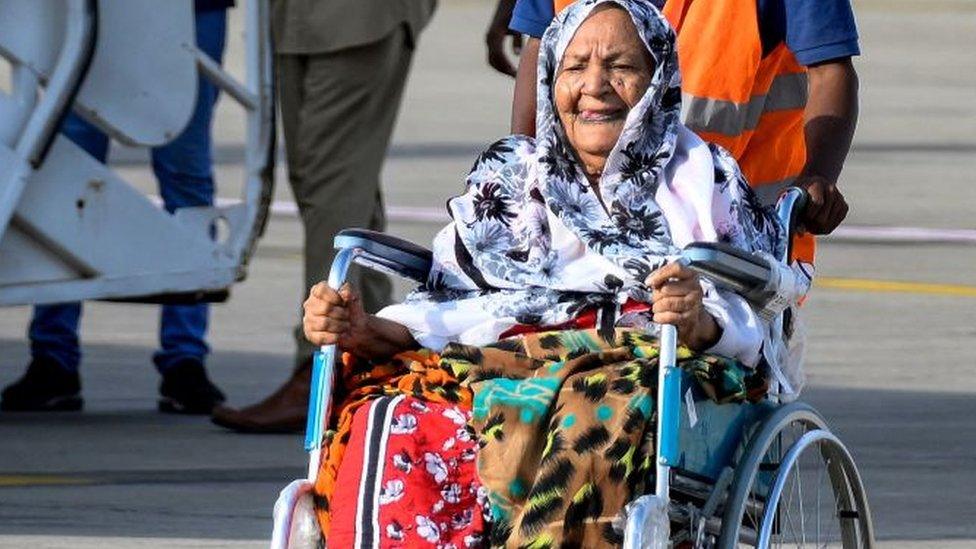
Many people seized the opportunity to return to Sudan after air flights resumed
Young and poorer Sudanese are also returning in the handful of buses that leave Egypt each day. Sometimes, they spend three days on the road to reach their homes, as Sudan is a vast country, and does not have the best of roads.
They found life in Egypt tough, as there are no UN-run refugee camps to provide them with shelter and food - unlike Chad, which hosts the highest number of Sudanese refugees, about 420,000, while Egypt has about 320,000, according to official statistics.
I spent about two weeks in Port Sudan, which has turned into the alternative capital of Sudan, with the war forcing Gen Burhan to relocate to the city as the RSF controls large parts of Khartoum, including key government buildings.
He had been besieged in the military headquarters in Khartoum until August, when he managed to leave. The RSF has since been carrying out a major assault to take control of the building.
The fear is that Sudan could end up with two rival governments - one set up by Gen Dagalo in Khartoum, and another by Gen Burhan in Port Sudan.
Gen Burhan's ministers - or minister designates - have also settled in Port Sudan, with the Ministry of Foreign Affairs asking the city's authorities to grant it land on which it can build its headquarters. Many diplomatic missions and United Nations agencies have also moved to Port Sudan - a strategically important city along the shipping routes of the Red Sea.
Though largely peaceful, the city was hit by fighting just over a week ago when government troops tried to remove checkpoints set up by an ethnic militia.
It raised fears that the war could spread to the city, but government forces have so far kept control, manning their own checkpoints, carrying out patrols and enforcing an 23:00-06:00 curfew.
There are now also power cuts of several hours every day, forcing businesses and homes to use generators that have worsened air pollution and noise levels in the coastal city, a popular holiday destination until war broke out.
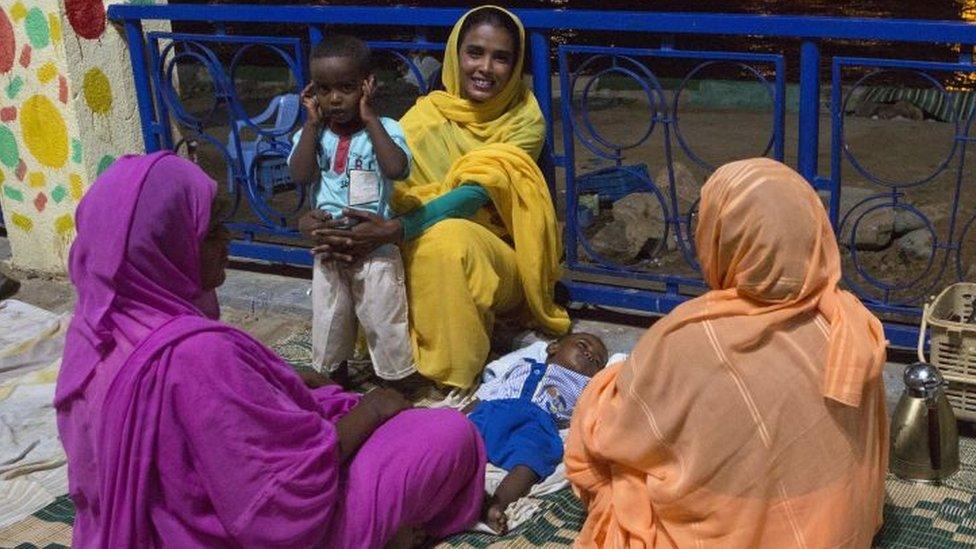
Port Sudan's corniche is not as busy as it used to be at night
The corniche - which was at the heart of night life where friends and lovers used to meet - is no longer as bustling as it used to be.
Food shop owner Ibrahim Taha said he had been forced to shut his business, as costs increased while his clientele fell. He is now unemployed.
Another restaurant owner, who specialises in "al-Aqashi," a popular meal of mostly meat grilled on thin skewers, said the war forced him to shut his business in Khartoum, and relocate to Port Sudan.
"I suffered great losses in Khartoum, after the RSF took control of the al-Amarat neighbourhood, where my restaurant is located, and so I decided to leave for Port Sudan," he said, adding that despite the constant power cuts and rising costs he was thinking of opening other branches as demand for his food was high.
Port Sudan has become home to hundreds of families who fled fighting in Khartoum. Some of them live in harsh and overcrowded conditions in schools and government buildings, with a lack of food, healthcare, and clean drinking water.
One woman, Batoul Tayya, said she and her children had moved out of their shelter, "thanks to a generous benefactor who gave us housing".
"The situation in the shelter was extremely difficult, so I decided to leave with my family and start selling tea," she said.
Her story - like that of many others - was a painful reminder of a war that has ruined in the lives of millions of people.
We all hope that the conflict ends soon so that our lives can return to normal.
I am now back in Cairo, and life further north along the River Nile, is just not the same.
I long for Omdurman, to walk by the White Nile, to sit under its trees, and to sip tea while chatting to relatives and friends - reuniting with them and remembering those we lost in the war.
- Published5 May 2023

- Published17 September 2023
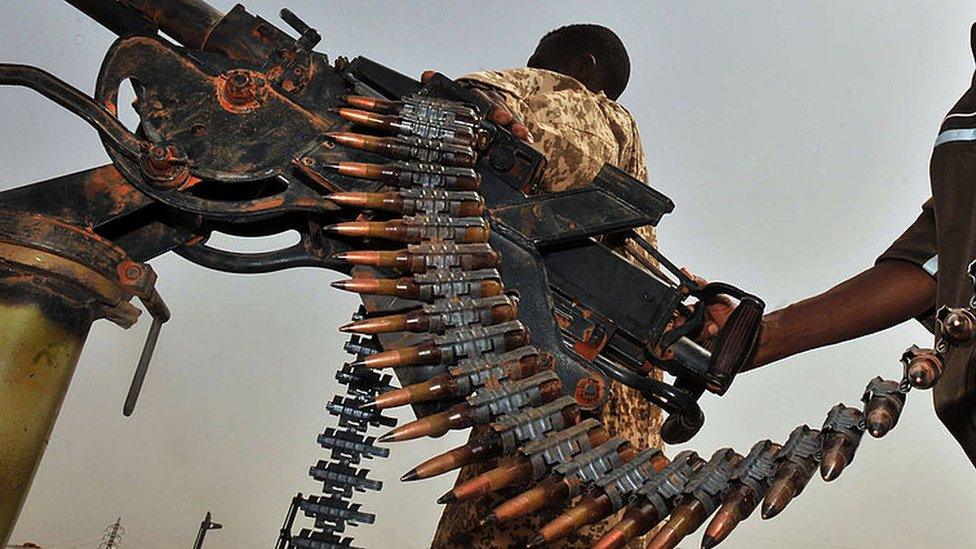
- Published24 June 2023
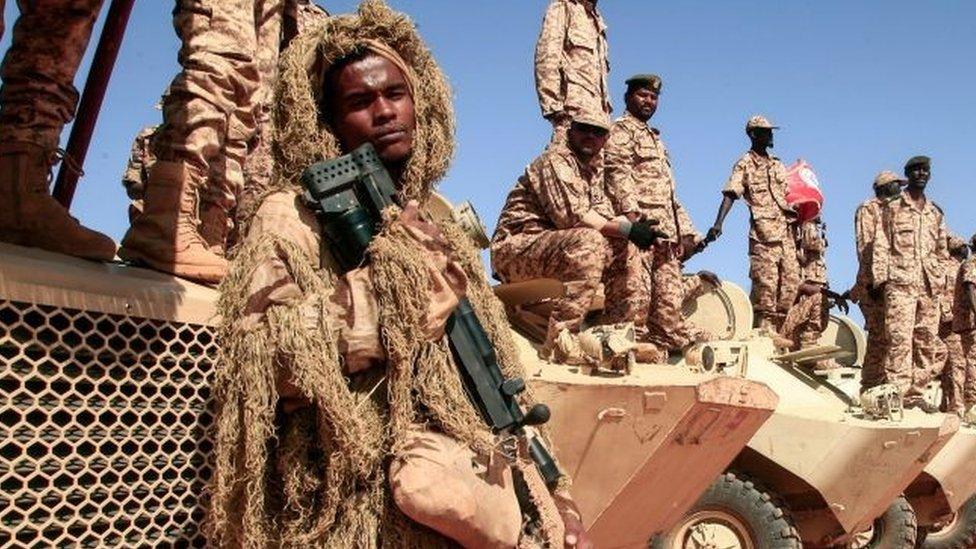
- Published24 April 2023
